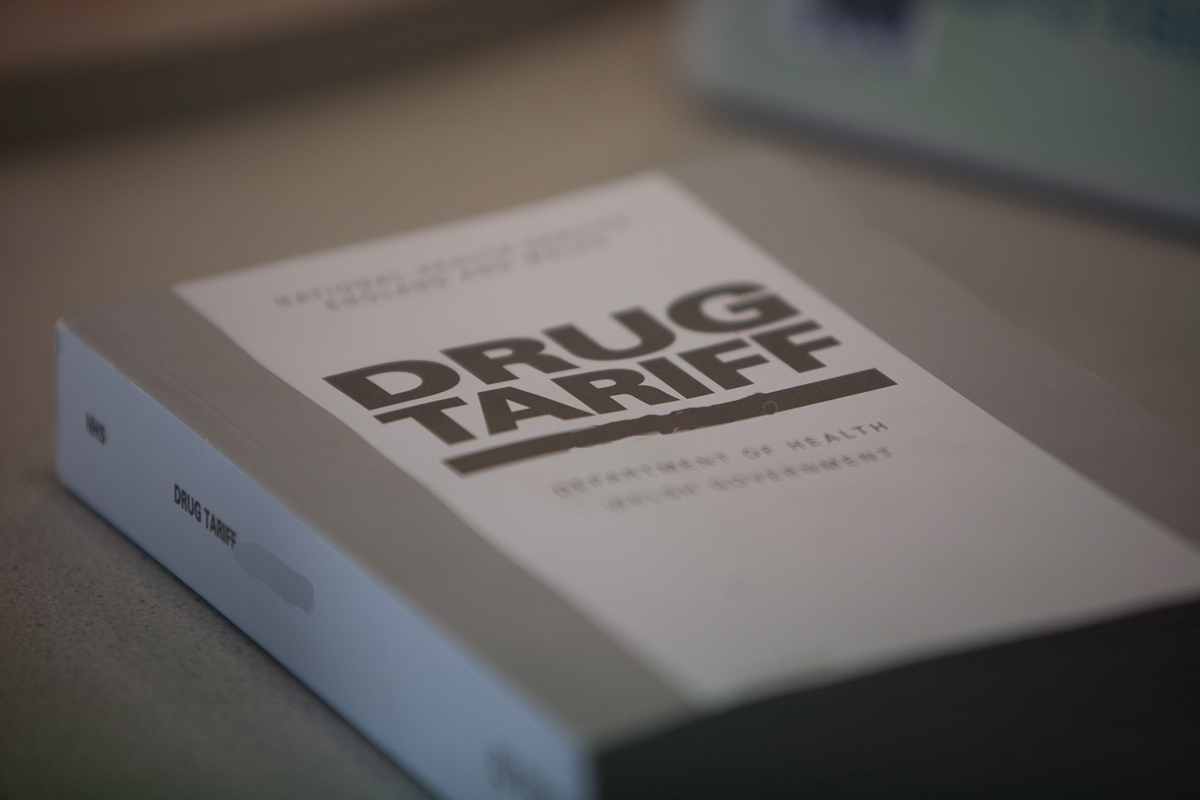Contractor Announcement: CPCF arrangements for 2022/23 and 2023/24 agreed
PSNC, the Department of Health and Social Care (DHSC) and NHS England have agreed the arrangements for the Community Pharmacy Contractual Framework (CPCF) in 2022/23 and 2023/24.
Although the agreement is in line with the five-year CPCF deal, it includes an extension of the Transitional Payment to recognise ongoing pressures and a one-off £100 million excess margin write-off for contractors. This was hard-won, and it means that Drug Tariff prices will be relatively higher in the New Year, allowing the sector to keep £100m that would otherwise have been paid back to Government.
PSNC’s clear view was that these monies will be critical for contractors as we head into a very challenging winter period. Rejecting this deal would have meant losing the £100m, which was not an option given the precarious financial position that so many contractors are now in.
The deal also includes the launch of a new Pharmacy Contraception Service, modest expansions to existing services, a Pharmacy Quality Scheme (PQS) in both years, and an agreement to commission an independent economic review of community pharmacy businesses, which we believe will demonstrate the scope and scale of the unsustainable pressures on the sector.
PSNC has also insisted on a commitment from DHSC to review the implementation of the Price Concession system, which is no longer working from a contractor perspective.
Throughout a tense period of negotiations, PSNC has been frustrated by the refusal of Government and the NHS to move away from the five-year CPCF deal, despite the overwhelming evidence of the current economic pressures. The five-year deal was agreed when the current economic situation and COVID-19 pandemic could not have been foreseen, and also at a time when PSNC was being threatened with further funding cuts for the sector if agreement could not be reached.
The PSNC Committee voted overwhelmingly to accept the deal for 2022/23 and 2023/24 in order to guard against the threat of having to pay back an additional £100m in margin to Government, to hold on to the other negotiated benefits for contractors, and to maintain an open and constructive dialogue with the new Government.
But PSNC is now engaged in urgent work to seek further financial support and other help for contractors to come from outside of the CPCF funding.
Summary of the deal
|
Further details on the various elements of the deal are set out below and in our contractor briefing. More information on PQS is available here.
Read the joint letter to contractors from PSNC, DHSC and NHS England
As part of these negotiations, PSNC put in comprehensive evidence-based bids for significant additional funds and a Walk-in self-care consultation service back in March.
But despite the considerable weight of evidence provided, HM Government has refused to move away from the five-year CPCF deal which it has treated as set in stone regardless of the unpredictable events in the world which have changed the outlook for pharmacies.
At the outset of the negotiations, DHSC and NHS England put a tough series of proposals on the table that set out demanding requirements for PQS and higher levels of service thresholds for the Transitional Payment that would have gated-out many contractors from service payments. PSNC negotiated hard to improve these and to reduce the burden on community pharmacies.
PSNC Members, who are all pharmacy contractors or senior staff of pharmacy businesses, considered very carefully the final offer from DHSC and the NHS, and in May the Committee accepted the offer.
This was primarily on the grounds that the final negotiated offer was much improved on the original proposals made by Government and the NHS and the £100m margin that has been written off protects critical monies for the sector. It was made clear to PSNC that a decision not to agree this final offer would have resulted in an imposition and the loss of this £100m, which was only on the table as a result of the evidence provided and arguments made by PSNC.
Other negotiated benefits to contractors include the protection of the Transitional Payment, the more gradual rollout of services over the two-year period, and the commitment to an economic review and to review the implementation of the Price Concessions system.
Upheavals in Government delayed sign-off of the deal and in that time conditions for contractors have deteriorated. PSNC has have been pushing Government and the NHS to finalise sign-off of the agreement and to recognise the worsening situation for contractors.
But following a discussion at its meeting last week (September 15th) and with the alternative being an imposition which would have lost some of the crucial negotiated benefits for the sector including the £100m margin write-off, the Committee remained overwhelmingly in support of accepting the deal, while being clear that this was only a starting point and that we must continue to seek further help for contractors from wider Government and NHS budgets, including any winter emergency packages.
PSNC met last week (September 15th) to consider the immense pressures facing community pharmacy businesses and strategies for helping the sector to cope.
The acceptance of the CPCF deal was seen as a first and necessary step – not least to secure the hard-won £100m in margin write-off – providing a platform from which to seek further support. Urgent work has already begun to engage with new Government Ministers, and PSNC is seeking short-term relief measures to help contractors through the coming winter period.
The Government has remained steadfast in its refusal to uplift the five-year deal, so the view of the PSNC Committee is that we must seek monies from outside the CPCF to relieve the strains on contractors’ finances. This was successful during the COVID pandemic, and we are seeking to replicate that approach.
We will continue to press for a fully funded Pharmacy First scheme, and to seek wider easements and measures to help pharmacy teams to cope with the current pressures on them.
PSNC has also been keen not to cause a breakdown in relationships with pharmacy’s monopsony purchaser: this is critically important as we prepare for what comes after the five-year deal, which will require constructive dialogue with Government and the NHS.
PSNC, NHS England and DHSC have written jointly (letter to be published shortly) to contractors today setting out information on the CPCF for 2022/23 and 2023/24. PSNC has also issued a summary briefing for contractors.
PSNC will hold an online contractor event on the CPCF for 2022/23 and 2023/24 on Tuesday 4th October at 7.30pm: book your place here. This will be a chance to hear from the Chief Executive and to ask questions about the arrangements. Further briefings and webinars, particularly on the new Pharmacy Contraception Service and PQS, will be announced in due course. Please sign up to our emails to ensure you receive information on these as soon as they are available: cpe.org.uk/email
PSNC remains extremely concerned about the financial outlook for many community pharmacies and is in ongoing dialogue with Government about this, seeking urgent short-term financial support in addition to the CPCF funding. It is also critical that the sector works together to influence effectively ahead of negotiations on what happens after the current CPCF deal ends in March 2024 and an important part of this will be the work that PSNC is now undertaking to develop a community pharmacy vision and strategy for the future. Contractors will be invited to contribute to this work, and should again sign up to PSNC’s emails to ensure they receive information about this programme which will be critical to the sector’s future: cpe.org.uk/email
Joint letter to contractors from PSNC, DHSC and NHS England
Sign up for PSNC’s contractor webinar
PSNC Briefing 029/22: CPCF Arrangements for 2022/23 and 2023/24
PSNC Statements
PSNC Chief Executive Janet Morrison said:
“We entered these negotiations back in March armed and ready for an uphill battle. We took with us compelling evidence about the growing pressures on pharmacy, a clear story about how valuable pharmacy is, and a strong bid for a fully funded pharmacy walk-in service. But we could also see the broader context of public spending being squeezed ever more tightly, and were hearing about very difficult negotiations – in which requests for inflationary increases were being flatly rejected – from colleagues across the wider primary care professions.
“In that context, and given Government’s resolute refusal to move beyond the five-year deal which they clearly view as set in stone, we are pleased to have improved on the original offer from the NHS and Government as much as we did, getting a crucial £100 million margin write-off and protection of the Transitional Payment to help compensate for rising pressures, as well as significantly reducing both the scope of the PQS and the pace of rollout of new services. Rejecting this deal would have lost all of these benefits for contractors, as well as ruining any chance of a more constructive relationship with our new Government, which was simply not an option.
“We know this deal will not address all of the serious challenges facing contractors and that is why work continues apace. We are raising our concerns at the highest levels, writing to the Prime Minister and Secretary of State as they were appointed, and we will be seeking urgent financial help for the sector to come from outside CPCF funding. As well as this funding help, we are seeking a range of measures to make day-to-day life for pharmacy teams easier. We are also starting collaborative work on a new vision and strategy for the sector and ramping up our wider influencing work to put us in a stronger position ahead of the start of the next CPCF negotiations.
“We must find a way to turn the dial in pharmacy’s favour and to ensure that the vital service we provide to patients and the health service is recognised and valued in our funding settlement. The brutal cuts inflicted in the five-year deal have now done untold damage. We look forward to the independent economic review of the sector which, combined with a scaling up of our media and influencing work, will help us to hold policy-makers to account and to show them what we already know: that community pharmacy, if properly funded and supported, can play a vital role in relieving pressure on the NHS, supporting its recovery and delivering better outcomes for patients.”
PSNC Vice Chair, Member of PSNC’s Negotiating Team, and independent pharmacy contractor Bharat Patel said:
“Despite the flat-funding constraints of our five-year deal, we went into these negotiations determined to do all that we could to improve the economic position of contractors. We rejected the Government’s very tough initial stance, in particular safeguarding the Transitional Payments, with some recognition of pressures, and gaining a £100m margin write-off.
“We know this is not enough – all members of PSNC remain deeply concerned about pharmacy finances and capacity – and this is why our work continues. Agreeing to the deal allowed us to bank an extra £100m for the sector. Rejecting the deal, while allowing us to make a stand, would have meant losing this, as well as losing other benefits and the chance to engage constructively with a new Government. We will continue to do everything within our power to demand that Government and the NHS support us through the looming economic crisis: pharmacy stepped up to support them in their COVID hour of need, and they must now return that obligation.”
Clare Kerr, Head of Healthcare Policy and Strategy at LloydsPharmacy, Member of PSNC’s Negotiating Team and vice-chair of PSNC’s Service Development Subcommittee, said:
“Despite the very difficult outlook for all community pharmacy businesses and the growing pressures on capacity, the Committee felt it right to agree to the new Pharmacy Contraception Service being introduced, as this is very clearly in line with the sector’s ambitions for the future. The service, when pharmacies have capacity to offer it, will be a positive step forward, allowing pharmacies to give people the advice and contraception they need in a more convenient setting, while also freeing up further GP capacity.
“It is very disappointing that we were unable to agree a fully funded pharmacy Walk-in service, but we continue to be clear to the Government and NHS that they must not drive even more patients to pharmacies for self-care consultations without this being properly resourced. This remains a clear focus for us – as demand for advice continues to rise, pharmacies must have the support they need to offer it.”
Peter Cattee, Member of PSNC’s Negotiating Team, Chair of PSNC’s Funding and Contract Subcommittee and Managing Director of PCT Healthcare, said:
“Inflationary pressures are making costs impossible to control and for many contractors cashflow is now a significant worry. This is exacerbated by the Price Concession issues which we have been pressing DHSC hard to resolve, and which they have now committed to reviewing. Added to all of this, going into these negotiations we knew that over the past two years the sector had earned more than our allowed £800m margin: in effect, a debt to Government.
“On top of all the other pressures, a reduction in margin over the next two years just could not have been absorbed and would have put cashflow catastrophically at risk. This is why we had to address this in the CPCF negotiations and we were able to eventually get agreement from Government to write off £100m in margin. This was a critical achievement and means that pharmacies will be allowed to earn £100m more in margin than they would have been over Years 4 and 5.
“But despite the retention of £100m, and our need to accept it, we know this deal is still not enough for contractors – it continues the apparent Government and NHS policies to squeeze the sector as hard as they can, and it’s this entrenched approach that we must tackle. The independent economic review will help us to do that, but in the shorter-term we need policy-makers to understand that their refusal to uplift the five-year deal has consequences – for our businesses, our patients and local communities. Without a change in approach, the service degradation and disruption that we are already seeing will continue.”








